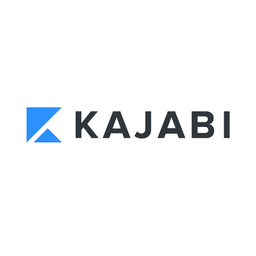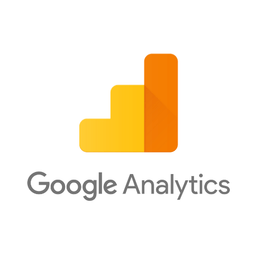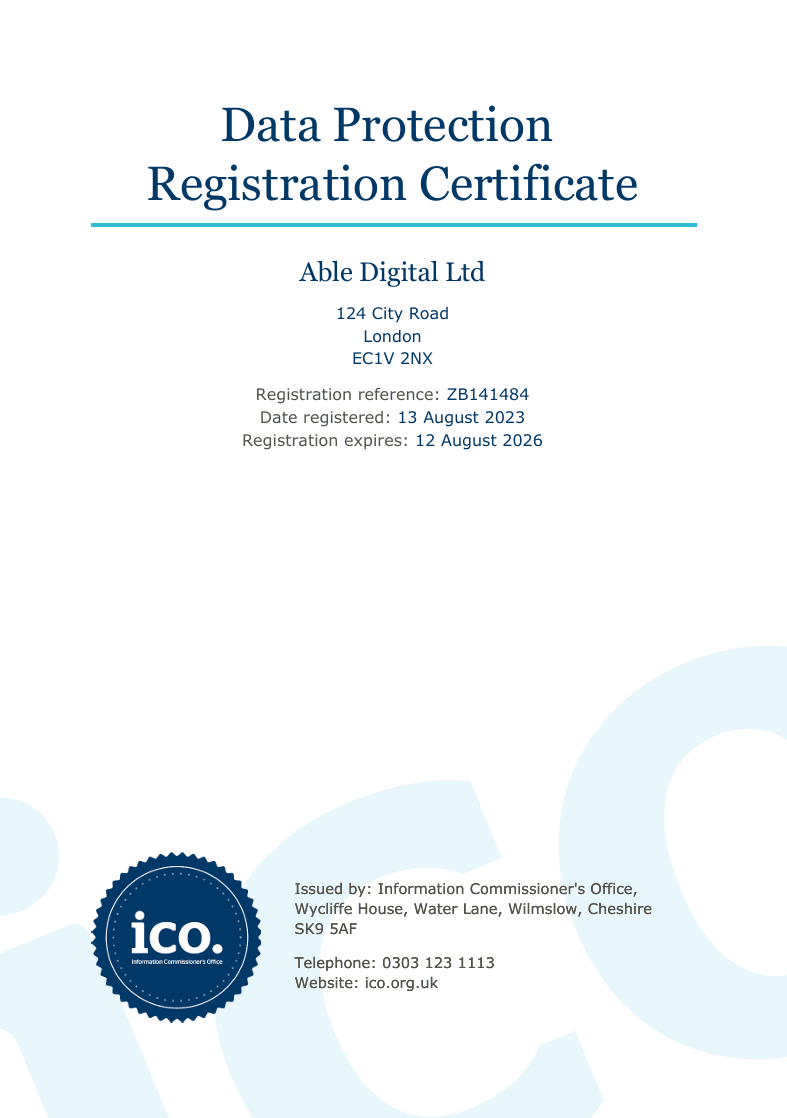Kajabi and Google Analytics 4
Why do Kajabi and Google Analytics Need to Be Connected?
Kajabi is a business platform for serious entrepreneurs, experts, and influencers. Google Analytics is one of the most widely used web analytics services. Both platforms offer a rich set of marketing data, but there are often significant discrepancies between them.
- 30-40% of conversions in Google Analytics often have direct or incorrect sources, as well as not being attributed to the actual landing page that the customer first saw or found in an organic search engine. This happens because Google Analytics creates a separate session for the returning customer when a different device is used or if browser privacy features block Google Analytics cookies. Stripe also does not enable track website visitors before they become customers and link purchases to the original lead source.
- E-commerce funnels used to be amongst the simplest to track. New developments in e-commerce marketing made tracking and understanding customer journeys a lot harder for many types of funnels. Often, the lead may be first captured on a domain separate from the main store website. Or an external service can be used to capture the customer's email on the main website. Then, once a purchase eventually happens, neither the service used to run the store or traditional analytics services could attribute it to the source correctly as neither has ability to track the entire funnel. As a result, 30-50% of purchases don't have correct source in analytics, as well as missing from the ad platforms' reports.
Many marketers see this as a natural technology limitation. It doesn't have to be this way. E-commerce sales can be tracked throughout the entire funnel: from the first interaction to the revenue. Attributing sales to leads and leads to marketing sources allows for accurate tracking of end-to-end marketing campaigns and understanding of ROI. The server-side Kajabi and Google Analytics 4 integration in combination with first-party attribution makes it possible to get a complete view of the customer journey.
A Complete Solution for Integrating Kajabi and Google Analytics
Able CDP combines browser tracking with server API integrations, linking Kajabi lead forms with purchases on the back-end to build a complete journey of each customer across Kajabi and Google Ads.
This allows you to attribute 99% of sales to the correct marketing source, ad click and landing page and obtain data to inform strategy.
All of this without coding and complex manual set-up of the connection between Kajabi and Google Ads. Able already knows how to connect marketing data between Kajabi and Google Ads.
How Able CDP Integrates Kajabi and Google Analytics
Able tracks Kajabi lead forms as well as purchases by receiving web hooks from Kajabi and attributing purchases to the original visitor tracked by Able, allowing it to send purchase conversions to Google Analytics and ad platforms such as Google Ads.
Able Customer Data Platform combines browser and back-end tracking to:
- store Google Analytics Client Id for each lead form;
- add UTM parameters, referrer URL and landing page details to new leads;
- attribute successful Kajabi sales or successful sales on other platforms such as Stripe or ClickFunnels to the Google Analytics user id and send e-commerce transaction to Google Analytics.
6 Steps to Connect Kajabi with Google Analytics by Using Able
Step 1. Sign up for a free account
Complete the sign up form to get an Able trial account set up instantly. No credit card required.
Step 2. Install Able tracking code on the website
After signing up for a free account, Able CDP will prompt you to add code to your website.
Able automatically tracks Kajabi dynamic lead forms, as well as many other dynamic lead form types. Able works with all Kajabi integration scenarios, including:
- When Kajabi landing pages are used and all payments are processed with Kajabi
- When third-party CMS is used for landing pages and Kajabi is used as an e-commerce platform to do sales
- When Kajabi landing pages are used and payments are processed with external payment systems and e-commerce platforms
This tracking code will record ad click ids and details of the original landing page visit, as well as lead form submissions, allowing to attribute customers to website visitors. Able CDP uses its tracking to capture UTM parameters, referrer URL and landing page URL, store them in its own attribution database together with the personal identifiers such as email or phone, entered by customer in lead and order forms, allowing it to associate all future customer activity with the original website visitor source.

If you use Kajabi lead forms, you don't have to specify pages with forms manually - just make sure that Kajabi is selected in the dynamic lead forms tracking directory and added to the Dynamic Lead Foorms Tracking section.
Press Generate in the Get Code section to generate a unique tracking code to add to your site.
Able CDP page view tracking doesn't install its own cookies and relies on third-party identifiers such as Google Analytics Client Id to connect customer activity between website pages. Please enable cross-domain measurement in Google Analytics if your landing and lead/order pages are hosted on different domains.
Step 3. In the Funnel tab, click Add Service Integration to select which platforms you want to integrate with


Step 4. Connect Able to Kajabi
To track customer details and associate Kajabi customers with the visitor details, install tracking code generated using the "Code" section in Able dashboard. This code will track Kajabi form submissions.
To set up sending of completed purchases from Kajabi to Able, add the following Purchase Webhook URL in Kajabi settings under Settings - Checkout:
https://7ibt78j0ja.execute-api.eu-west-2.amazonaws.com/Prod/kajabi-webhook/%%FUNNEL_MARK%%
where %%FUNNEL_MARK%% - unique identifier of your funnel.

Able will now receive webhooks from Kajabi, automatically attributing Purchases to Visitors by customer emails and phones and sending Purchase conversions with detailed Invoice Lines where supported.
Note. Kajabi webhook for the Purchase events doesn't include the Purchase details. Able overcomes this limitation by including a workaround that captures the amount when a purchase started as an InitiateCheckout event and applying purchase details from it when the purchase is completed on the Kajabi back-end. If Able Customer history doesn't contain InitiateCheckouts events, please verify that the visitor tracking code has been generated using the "Code" tab in the Able CDP dashboard is displayed on pages with Kajabi order forms.
Step 5. Add Google Analytics Property Id to Able to send leads as Google Analytics e-commerce conversions
1. The first step is to locate the Google Analytics tracking id for the property you’d like to use for reporting.
Open Google Analytics, Admin – Data Streams page. Obtain and record Measurement Id.
2. Second, you'll be save the Google Analytics Measurement ID in Able

3. Enable Outbound Integration
Select the Google Analytics Credential you’ve just saved and ‘Purchase’ event type. Press ‘Save’. Repeat for Lead event type if you'd also like Able to send Lead conversion events to Google Analytics 4.

At this point required integration setup is complete and Able will start sending all Purchases that it attributed to Google Analytics visitors to Google Analytics Measurement API. Conversions will appear in all standard reports; additionally.

We offer complete support of Google Analytics 4. Universal Analytics will shut down in July 2023, so we recommend beginning the process of sending data to GA4 now so you have time to familiarize yourself with the platform and begin accumulating data there.
Learn More
Send Purchases to Google Analytics
Send attributed Purchases to Google Analytics from any source, such as a sending a closed won CRM deal, a successful Stripe Invoice payment or an e-commerce purchase that has been successfully paid.
Sending conversions to Google Ads is an extremely common integration scenario. It's used to add conversion value to Google Ads’ reports, allowing it to report on ROI, as well as to use performance-based targeting and optimization capabilities.
Send Purchases to Facebook Conversions API
Attributing conversions to Facebook Ads is a common task, however doing it with sufficient precision is hard. Sales might happen in CRM, or, when they happen online, customer might not come back to the website, so tracking with Facebook Pixel JS produces substandard results. Able solves this problem with its Facebook Conversions API integration.








